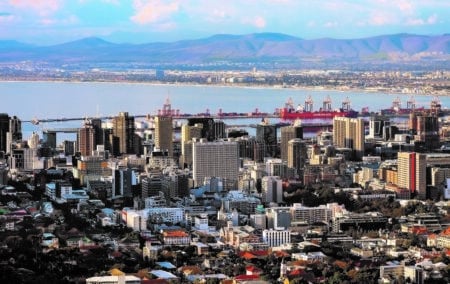Property investment in Cape Town’s inner city exceeded R3.5 billion in 2022, and the retail, hospitality and eventing sectors are all undergoing ‘regeneration’.
These are the key findings of the latest – 11th – edition of theState of Cape Town Central City Report 2022 – A Year in Review (SCCR), published annually by the Mother City’s Central City Improvement District (CCID). The document is regarded as a sought-after tool, indispensable to investors, developers and retailers seeking to invest in central Cape Town.
CCID board chairperson Rob Kane says data in the 80-page SCCR shows that 2022 ‘ushered in a new phase of regeneration’.
Says Kane: ‘It’s clear from the results of the report that the Cape Town CBD has put Covid firmly behind it and is experiencing regrowth and stability. With the construction sector regaining its pre-Covid momentum, and the total value of property investment in the Cape Town Central City to be conservatively estimated at R3.555 billion, it bodes well for further growth and investment in the economic hub of the Mother City.’
Kane says the ‘most significant indicator of investor confidence in the Cape Town Central City is the sustained growth in the overall official value of all property in the CBD of more than R12.2 billion in 2016/17 to R42.9 billion in 2022, according to the City of Cape Town’s property evaluation’.
The CCID says a total of 22 property developments or redevelopments were recorded in 2022: four were completed (worth more than R170 million); 12 were under construction (worth more than R3 billion); five were in the planning phase (worth more than R300 million), and one project was proposed.
Of the 22 projects, eight were residential buildings. These would ‘add thousands of new units to the Cape Town CBD’s highly competitive property market and indicating a strong demand for residential property’. The remaining projects included six commercial, four mixed-use and two retail buildings.
Kane notes that ‘other key economies that drive business and investment into the Cape Town CBD, namely the hospitality, retail and event sectors, were also all on the rebound by the end of 2022’.
The CCID says ‘at least 10 of the 17 sectors that operate in the Cape Town CBD experienced growth in 2022 with the number of business entities overall increasing by 135, from 2 981 in 2021 to 3 116 in 2022’.
Kane notes: ‘In 2022 there was a steady improvement in the total retail vacancy rate as footfall returned to town and new retailers opened their doors.’
The key retail sector, making up 1 243 of the 3 116 entities doing business in the Cape Town CBD, increased its footprint in 2022, with more than 80 new retail outlets opening their doors.
The total vacancy rate of retail space in the Cape Town CBD – 13 183 m² – amounted to just under 5% of the total retail space available, down from 9.9% in 2021.
The office vacancy rate in the Cape Town CBD at the end of 2022 was 13.3%, down from 16.1% in 2021.
Other key features of the SCCR report include:
- An overview of the most resilient economic sectors in 2022;
- A report on the visitor economy and hotel occupancy rates in 2022, as well as an overview of the port and cruise economies;
- A property investment map detailing the 22 locations of completed developments, current construction sites as well as those of planned and proposed projects;
- A section on the four precincts that make up the CCID’s 1.6 km² geographic footprint, covering business, property, economic and living trends, and how they fared in 2022; and
- A comparison of the results over the past decade of findings from the CCID’s annual online dipstick Residential Survey.
[Image: Robert Anderson, supplied by CCID, https://www.capetownccid.org/]

